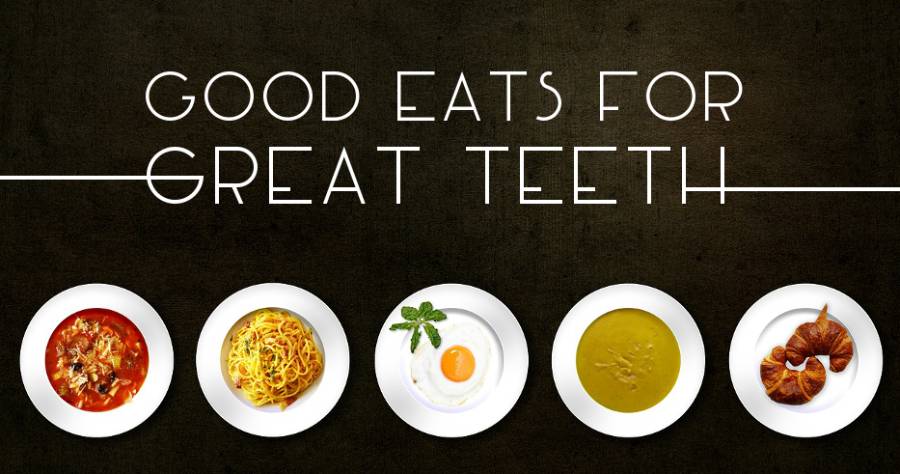When we eat, we rarely think about how our favorite foods affect our teeth. Well, we should! Different foods can have effect our oral health in different ways. Here are some types of foods that are recommended and some that are not. Follow these guidelines, and your smile will remain radiant…and you’ll feel healthier overall as well!
Cheese and wine, cheese on pizza, cheese and crackers—it’s safe to say we all love this delicious type of dairy! Cheese (just like milk) has plenty of calcium and a low acidity. Calcium is what strengthens teeth and bones and helps to prevent decay from forming as you age. Also, within cheese there is a protein called casein that helps inhibit bacteria from forming on our pearly whites. So, eating cheese can ultimately be a good thing for preventing cavities and maintaining your oral health.
This next one may seem obvious because, as the saying goes, it keeps the doctor—including the dentist—away. Yes, we’re talking apples! All varieties of apples require a lot of effort to eat (lots of chewing), thus allowing the saliva in our mouths to accumulate, which neutralizes acids in our mouth that would normally harm tooth enamel. Apples are also packed with fiber that helps clean teeth, sort of like a natural toothbrush. That doesn’t mean you can skip brushing twice a day, though!
This food is one you might be surprised to find has a positive effect on your oral health: sesame oil. This oil has been shown to be effective in treating plaque and preventing gingivitis. If you choose to cook with it, wonderful. If not, try using it in place of mouthwash. This technique of “oil pulling” can potentially reduce the amount of bacteria in your mouth.
Your parents always told you that green veggies are good for your health, but did you know they are also good for your teeth. When we eat broccoli, the residues help prevent acids from sticking to teeth and initiating the decay process. So if you must drink a sugary soda, at least consider eating some broccoli or other green vegetables beforehand!
Lastly, who doesn’t love a little post-meal minty flavor? The ADA has suggested that chewing gum post-meal is beneficial for oral health. Chewing gum makes your mouth increase saliva production, and this aids in naturally ridding the mouth of bacteria buildup. However, try to stick to natural brands and avoid artificially flavored or colored gum as some contain more acid.
If you are curious about what effects your favorite foods could be having on your dental health, ask your dentist!
